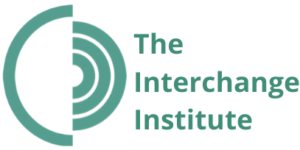You know how, after you bang your thumb with a hammer, you realize anew how often you need your thumb? Holding a pen, zipping a jacket, typing an email, all of which you’d been doing without thanking your thumb, suddenly become painful or impossible.
That happened with a lot of Americans during the recent five-week-long government partial shutdown, as we realized anew just how many things the US federal government does, and what it would mean to have it cut off. As the ripple effects spread, even those who don’t work for the federal government were forced into a nationwide civics lesson.
One of my own personal banged-thumb moments came last week when I tried to access some data at the US Census Bureau site. I do this regularly, to keep the basis of my training, research and publications about people moving into and out of the US up to date and reliable: how many Americans go to college, how are public schools funded, what fraction of the US population were born in another country and how has that changed over time – that kind of thing.
But last week, in my research, I found this notice at the top of the Census Bureau page: “Due to a lapse in federal funding this website is not being updated.”
Now, this thumb injury is minor and temporary, but it reminded me of how dependent we are, as a country, on reliable, trustworthy, non-partisan data that tracks change over time.* The Centers for Disease Control and Prevention track influenza, Ebola, food poisoning and obesity. Combined historic data from the National Weather Service, Department of Agriculture and Department of the Interior help farmers plan when to plant, fertilize and harvest. The Census Bureau’s data are the basis of Congressional district allocations. There are hundreds of government agencies collecting data that are used in important ways. We need these data sources to remain untainted, well supported, and available.
I’ve put a few links in the sidebars to help you explore these data sources even if you aren’t a data nerd like me. Try it; you’ll like it!
Anne P.S. What I was working on was the slides for my Crossing Cultures with Competence training of trainers course. Because I’ve now successfully updated them, you don’t have to! Join me for the next workshop – March 25-26, 2019, in Boston, MA. Details below.
*For a powerful, compelling, highly-readable look at government agencies and how important it is to keep their data collection non-partisan, read Michael Lewis’ The Fifth Risk.
American FactFinder is a good way to begin your exploration of government surveys about the US population. Enter your zipcode under “Community Facts” and see your local data from many different data sources. https://factfinder.census.gov/faces/nav/jsf/pages/index.xhtml.
If you like your government statistics in tiny fun packages, try following USAFacts on Twitter. Or go in depth at usafacts.org where they share data from 70+ government sources. Non-partisan, non-edited.
The US Census Bureau alone conducts 100 surveys – here’s a list of them: https://www.census.gov/programs-surveys/surveys-programs.html Need to know how school systems spend their money? where Americans buy things? how many people made visits to doctors’ offices? how much time men vs women spend in child care? OK, YOU may not need to know these things, but the people who make our policies and write our laws and regulations do. Consider the alternative….
Anne
